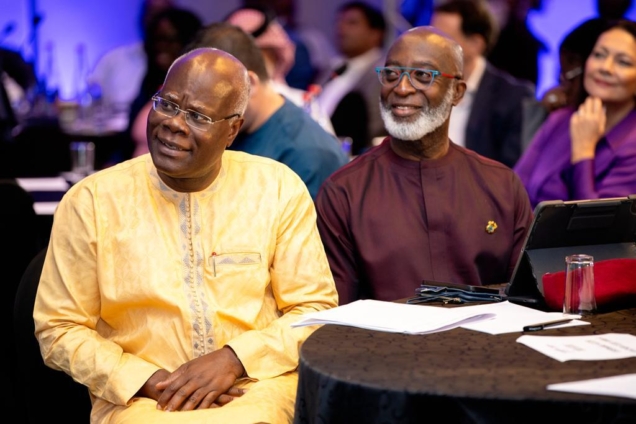The Minister of Trade and Industry, K.T. Hammond, says the government will create 2,000 jobs within a year from vehicle assembly plants due to its deliberate policy intervention.
Currently, Ghana hosts six vehicle assembly plants producing eleven 11 vehicle brands including VolksWagen, Toyota, Suzuki, Nissan, KIA and Hyundai.
Speaking at the inaugural Ghana Mutual Prosperity Dialogues, Mr. Hammond, said the legislative instruments for the full implementation of the Automotive Policy will be completed next year.
“So far, our estimates suggest that we can increase outputs from Vehicle Assembly Plants from 2,800 vehicles to around 7,500 by 2024, thereby giving us the critical mass to create at least 2,000 jobs within a year from vehicle assembly plants alone. Also, our legislative instruments for the full implementation of our Automotive Policy will be completed next year, ensuring that a framework for the development of Vehicle Assembly Plants and automotive components will guide our economic expansion going forward”.
He mentioned that Ghana is now recognised as an emerging hub for vehicle assembly.
“It is profound to note that over a relatively short span of 3 years of a deliberate policy intervention to create a new automotive sector, Ghana is now recognised as an emerging hub for vehicle assembly”.
Government targets 30,000 jobs
Mr. Hammond explained further the analytical assessment of where Ghana’s comparative advantages lie has led to a renewed policy focus on developing the textiles and garments, and pharmaceutical sectors, adding, “We expect to create about 30,000 jobs in garments manufacturing and exports by the end of 2024”.
169 factories established under 1D1F
On the One District One Policy initiative, the Minister of Trade and Industry pointed out that 169 factories were presently operational, and “we expect this number to increase next year”.
He continued that globalization and integrated global value chains also present many opportunities.
As such, by promoting international market access, global trade policies play a key role in facilitating economic recovery by stimulating job creation, supporting businesses of all sizes, and boosting domestic demand.
Additionally, the Trade Minister said the adoption of measures which minimise trade barriers and increase market openness would spur innovation and encourage the movement of capital into the economy.
“Ultimately, a more integrated global trade system would be instrumental in helping us navigate the chartered waters of international economic landscape as we embark on our economic transformation”, he stated.
Latest Stories
-
Personal and political interests disrupting power sector – IES
11 mins -
Kumasi to host Joy Prime’s Big Chef Tertiary S2 finals
22 mins -
KOD hints at releasing an album before he turns 50
28 mins -
2024 Election: NDC accuses NPP of printing fake ballot papers
36 mins -
A democracy that fails to solve its own problems is a questionable democracy – Dr Muhammad Suleiman
39 mins -
Our fight against corruption is more talk, less action – Mary Addah
46 mins -
CHRAJ report settles matters against Kusi Boateng – Lawyer
52 mins -
Growing dissatisfaction with democracy demands citizen-centered governance – Mavis Zupork Dome
55 mins -
Ghana’s Democracy: Choices, not elections will drive change – Benjamin Offei-Addo
1 hour -
PRESEC-Legon marks 86 years with launch of groundbreaking AI lab on November 30
1 hour -
Limited citizen participation threatens Ghana’s democracy – Prof. Kwesi Aning
1 hour -
Contractor storms basic school to drive out students from classroom, claiming government owes him
2 hours -
The quest for peaceful election: religious and traditional leaders should be part of election observers
2 hours -
NDC has better policies to boost economy through agricultural, oil sectors – Ato Forson
2 hours -
Yaw Ampofo Ankrah calls for Kurt Okraku and Executive Council to resign over AFCON failure
2 hours

